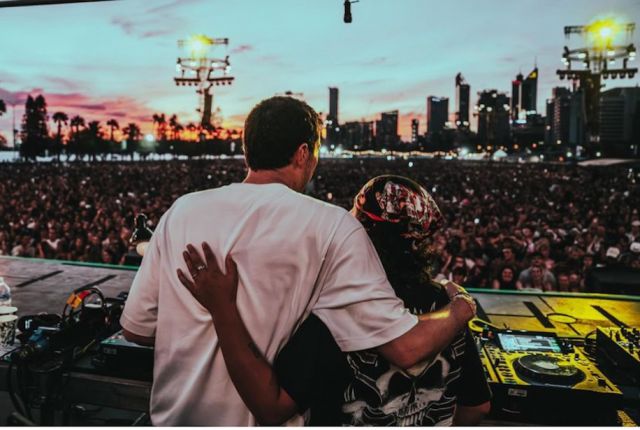From stage crew to space crew
• October 22, 2016

Two astronauts at the simulated Mars mission in Hawaii. Photo: Supplied / Ross Lockwood
As a boy, just like many others, Bryan Caldwell dreamed of becoming an astronaut. But while most never pursued that desire, he decided to actively work on it as an adult.
That meant changing his life. No longer would he confine himself to his job as a lighting and event designer in the Auckland theatre industry and beyond – something he excelled at. He would work for the National Aeronautics and Space Adminsitration (NASA) instead.
First, he needed a PhD. So he got one from Auckland University’s Bioengineering Institute.
Armed with that, he moved to New York to conduct post-doctoral research on cardiac defibrillation. For the next three years he worked on what, in layman’s terms, meant getting high-resolution 3D scans of a living human heart.
But his space aspirations were never far away.
“I just kept ringing NASA every week asking if they had a job, basically,” he said with a grin.
Finally, his persistence paid off: Dr Caldwell landed a job conducting a study on taste and smell in zero-gravity, as astronauts have reported a loss of both during prolonged stays in space. To simulate zero-gravity on earth, would-be astronauts were placed on tilted beds with their heads lower than their ankles for 70 days.
“Zero-gravity changes the movement of body fluids, so we measured everything: the eyes, ears, smell, testosterone levels etc,” Dr Caldwell explained.
At the same time, he played a key role in crew selection for the HI-SEAS-1 (Hawaii Space Exploration Analogue and Simulation) exploration in Hawaii.

One of the domes the astronauts work and live in. Photo: Supplied / Ross Lockwood
The HI-SEAS project is a simulated Mars mission, where between four and six participants are isolated in a dome designed to simulate a space craft heading to the planet. They can live there for up to eight months.
“We chose the volcanic slopes of Hawaii, because the environment is similar to that found on Mars, and we know there are volcanic areas we want to study there, and also it’s very remote, no one comes by, and nothing can grow there,” he explained.
One point of the simulation is to see how the isolation affects people. To simulate the delay when communicating from Mars to Earth, every message from the dome is sent through a NASA server, which has a 20-minute delay.
The crew has no live contact, except with each other. A natural effect of this experience is some sort of conflict, and this also has to be dealt with in a different way, Dr Caldwell explained.
“You can’t walk away from your crew to take a breather, so confrontation is not always the best option in a confined environment,” Dr Caldwell said.
Another psychological aspect of the mission, is the travel time. A trip to Mars takes approximately six months. “Going out is not as much of an issue, as you have the feeling of journey, but the trip back is also going to take six months.”
NASA is expecting to complete the first manned mission in 2030. Russia and China are working on their own projects for 2040 and 2050.
Dr Caldwell is currently working on the fourth HI-SEAS project Another two have recently been funded. The dream of becoming an astronaut has diminished.
“I’m really happy to do simulations, I want to keep doing what I’m doing now.
“And I have tried a lot of amazing things, a lot of astronaut training,” he said.
“Of course I would still love to go into space, but I think I missed my opportunity of becoming an astronaut.But I might go as a paying passenger some time.”

“Life has changed drastically”: Kiwi DJ Messie speaks on the aftermath of Fred Again tour
kate rickard • April 19, 2024



“Life has changed drastically”: Kiwi DJ Messie speaks on the aftermath of Fred Again tour
kate rickard • April 19, 2024




